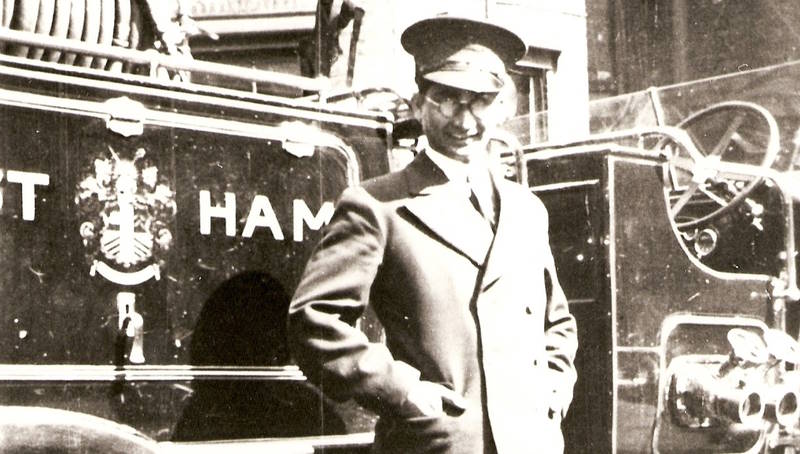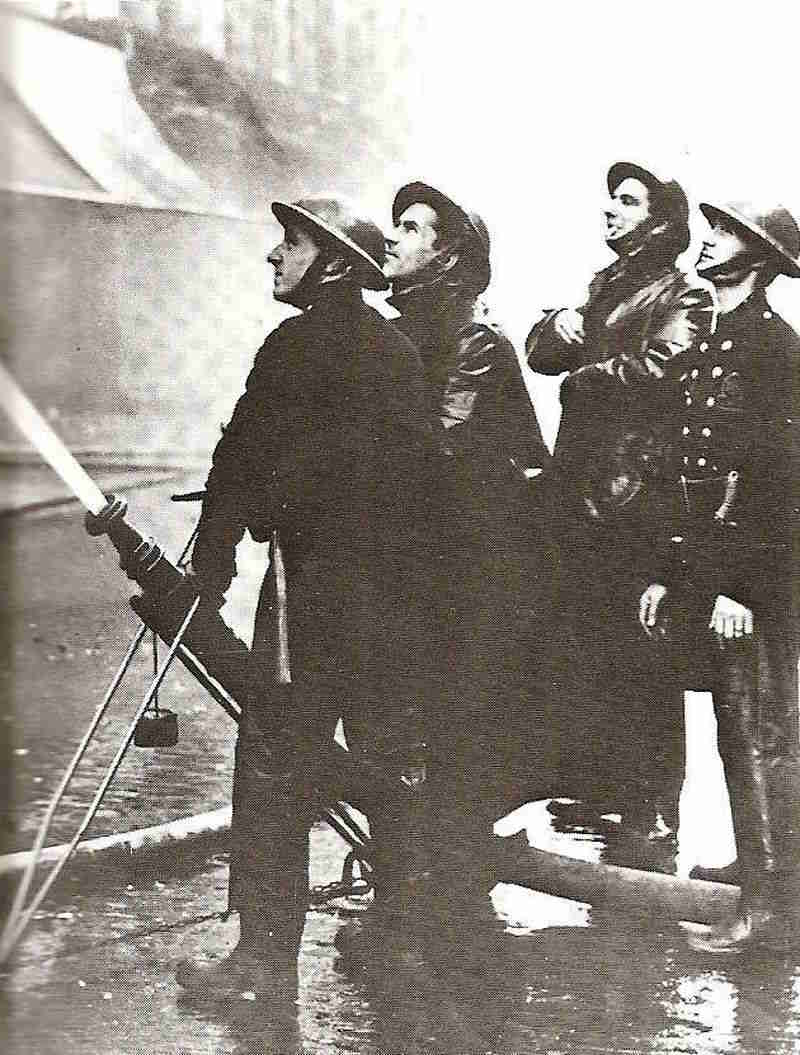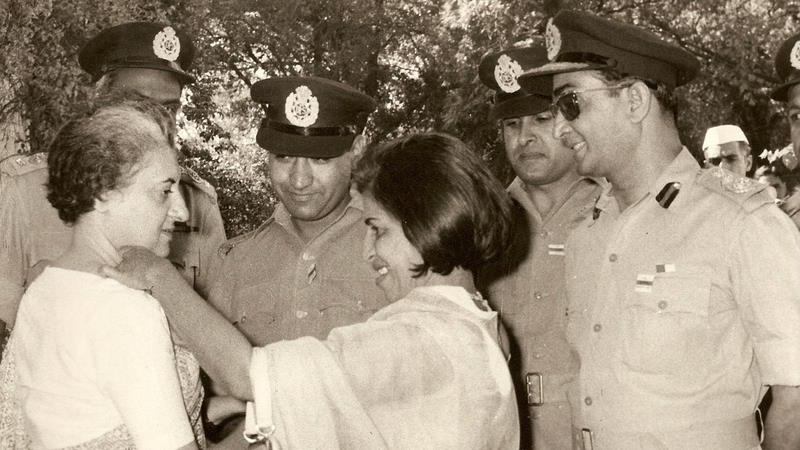
Historian Peter Williams tells the story of an Indian firefighter who battled his way through the Blitz in West Ham in the Second World War.
Origins
Arjan Baharsing Advani (also known by his nickname Jimmy) was born in Karachi (now in Pakistan) in 1915 to a professional Sikh family. His father was the Chief Medical Officer of the Port of Karachi. Arjan obtained an English degree from University of Bombay (now Mumbai) and then came to Britain in 1938 to study for a higher degree. As ‘The Times’ reported it in March 1939,
"By arrangement with the High Commissioner for India, an Indian student is to have a year's training with West Ham Fire Brigade".
He lived the life of a prosperous student and seems to have enjoyed West End nightspots and became friendly with those in show business.
West Ham Fire Brigade
After initially joining West Ham Fire Brigade (WHFB) in early February 1939, Advani was formally accepted as an officer cadet on 20 March 1939. The editor of ‘Fire’ magazine, W. W. Seabrook, seems to have had some hand in getting him the cadetship, as did the Indian High Commission. In the early days worked in the wages office, with the mechanics and in several other departments of the Brigade.
At the outbreak of the Second World War he joined the Auxiliary Fire Service (AFS). He was promoted to sub officer in September 1940, only two weeks after the start of the Blitz, when London was subjected to intense enemy bombardment. He distinguished himself in the Blitz and was described as a “zealous and very capable officer – a good disciplinarian and very capable in all branches of the service”.

Advani (pictured on the left) firefighting during the Blitz. He was injured in the leg when this large metal hose branch kicked back and he ended up recovering in Queen Mary hospital, Stratford.
In 1942 Seabrook wrote to Advani, speaking of his ‘gallant conduct and devotion to duty, at the worse of the ‘blitzes’ and the praise of your officers and comrades, when speaking of you to me.’
Despite this, there is some evidence that Advani faced discrimination in his time at WHFB, as there is a record of his colleagues being reprimanded for “tormenting” him. It was not only his racial background – he was a graduate and from an educated background at a time when most firefighters were from a naval or certainly working-class background.
Returning to India
In 1942 there was a fear that Japan might invade India and it was decided to second Jimmy Advani to the Indian Fire Service since he was by that time an experienced fire officer, hardened in the Blitz. He was posted to Calcutta (now Kolkata), a city of critical industrial importance and within easy reach of Japanese bombers based in Burma (now Myanmar). Advani also served in the Calcutta Industrial Area as a Divisional Officer between March and July 1946, and then Regional Fire Officer Western Region to 1947. That year India achieved independence from Britain.

Advani (pictured on the right) looking on as his wife presents a token to Indira Gandhi, prime minister of India, National Fire Service Day India, 1970s.
At the very young age of 32 he became the Chief Officer of the Delhi Fire Service, the first Indian to achieve such a high office, as India was now independent. Up till then all these posts had been filled by British firefighters. He remained there for 24 years.
Advani retired from operational duties in 1971 and then he was Fire Adviser to the Indian Government. He died in 1980 and his funeral cortege was accompanied by the Delhi Fire Brigade.
Excerpt and images from Peter Williams' 2019 book "West Ham and its fire brigade - an illustrated history"
The first Asian professional firefighter
Arjan Advani joined the Fire Brigade in 1939 and was the first Asian professional firefighter in the West Ham Fire Brigade. Around the same time, in South London George Arthur Roberts, from Trinidad, also joined the Auxiliary Fire Service in 1938, just before the Second World War. Roberts went back to his civilian trade after the war so was not a career firefighter but they were both trailblazers in this important period in the history of London Fire Brigade.